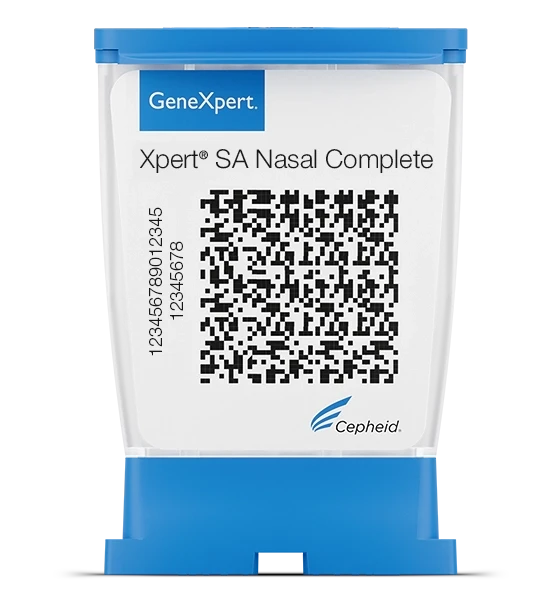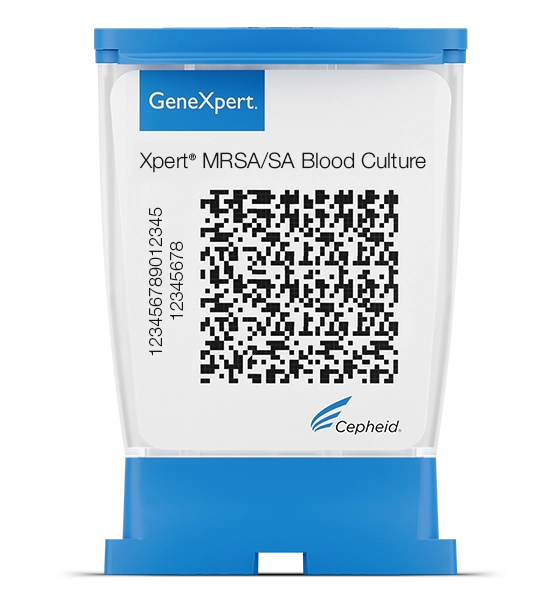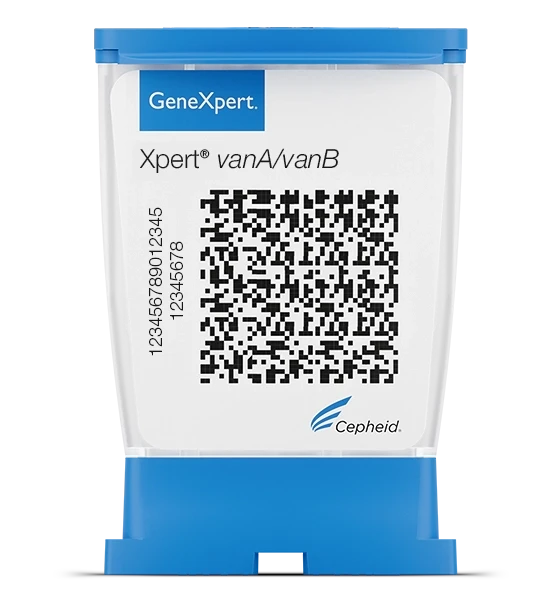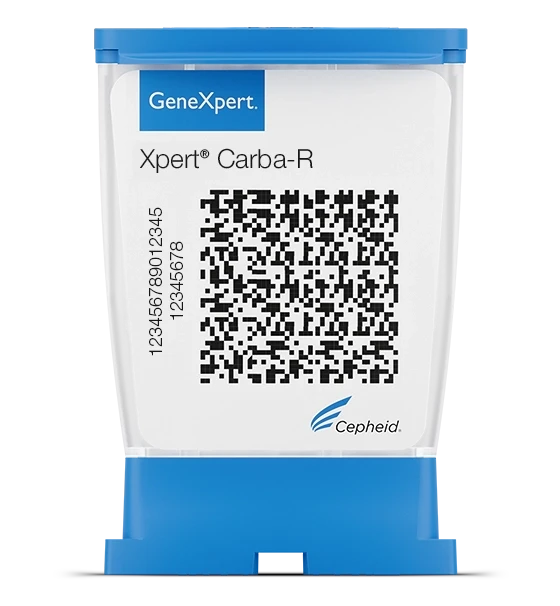

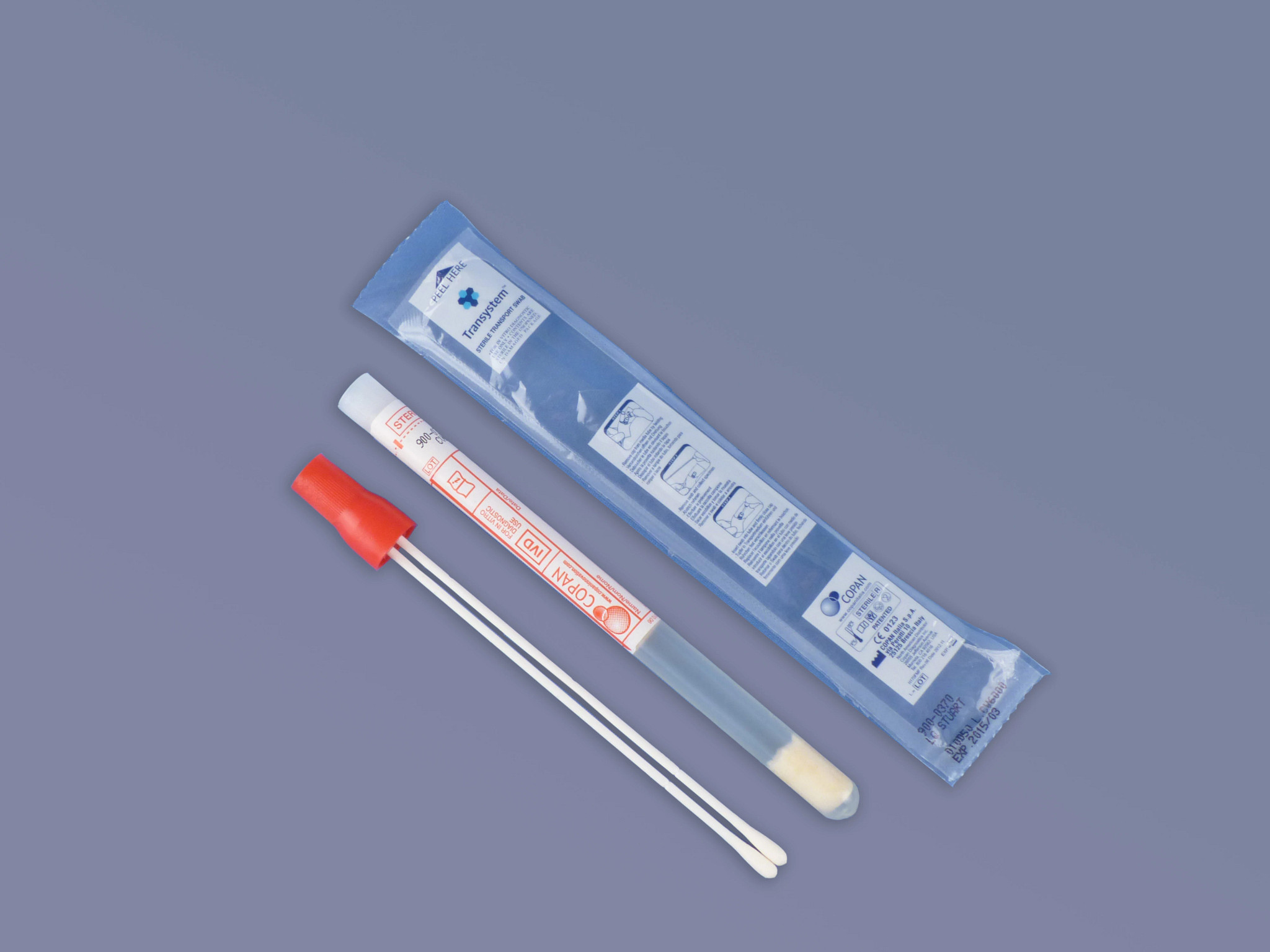
The Need
- Hospital-acquired methicillin-resistant Staphylococcus aureus (MRSA) infections are a major cause of morbidity and mortality worldwide1
- People with methicillin-resistant Staphylococcus aureus (MRSA) infections are 64 % more likely to die than people with drug-sensitive infections2
- Active surveillance of inpatients for MRSA is a strategy for preventing health care-acquired infections (HAIs) by MRSA1
2 World Health Organization. (n.d.). Antimicrobial resistance. World Health Organization. https://www.who.int/news-room/fact-sheets/detail/antimicrobial-resistance
The Solution
- Xpert® MRSA NxG is a qualitative in-vitro diagnostic test intended for the detection of methicillin-resistant S. aureus (MRSA) DNA directly from nasal swabs in patients at risk for nasal colonization*
- Quickly identify MRSA-colonized patients who require contact precautions to reduce the risk of transmission and avoid costly outbreaks
The Impact
- Rapid implementation of infection control measures and patient bed management1
- Superior clinical performance compared to other commercial tests1
- Minutes of hands-on time with results in about 1 hour on a random-access platform1
Product Resources
Product Information
Package Inserts & MSDS
Frequently Asked Questions
Xpert MRSA NxG is a qualitative in vitro diagnostic test intended for the detection of methicillin-resistant Staphylococcus aureus (MRSA) DNA directly from nasal swabs in patients at risk for nasal colonization.1
Xpert® MRSA NxG utilizes automated real-time polymerase chain reaction (PCR) for the amplification of MRSA specific DNA targets and fluorogenic target-specific hybridization probes for the real-time detection of the amplified DNA. The Xpert MRSA NxG test is intended to aid in the prevention and control of MRSA infections in healthcare settings. 1
The Xpert MRSA NxG test is not intended to diagnose, guide, or monitor treatment for MRSA infections, or provide results of susceptibility to methicillin. A negative result does not preclude MRSA nasal colonization. Concomitant cultures are necessary to recover organisms for epidemiological typing or for further susceptibility testing. 1
Staphylococcus aureus (SA) is a human pathogen, which is the causative agent of a range of diseases including bacteremia, endocarditis, osteomyelitis, toxic shock syndrome, food poisoning, carbuncles, and boils.1
In the early 1950s, acquisition and spread of beta-lactamase-producing plasmids thwarted the effectiveness of penicillin for treating SA infections. In 1959, methicillin, a semi-synthetic penicillin, was introduced and, soon after, methicillin-resistant SA (MRSA) strains were identified.1
MRSA colonization increases the risk of infection, with infecting strains match colonizing strains in as many as 50–80% of cases. MRSA nasal colonization rates range from 0.9% to 1.5% in the United States2
References:
1. Xpert® MRSA NxG Package Insert.
2. Turner, N.A., Sharma-Kuinkel, B.K., Maskarinec, S.A. et al. Methicillin-resistant Staphylococcus aureus: an overview of basic and clinical research. Nat Rev Microbiol 17, 203–218 (2019). https://doi.org/10.1038/s41579-018-0147-4






